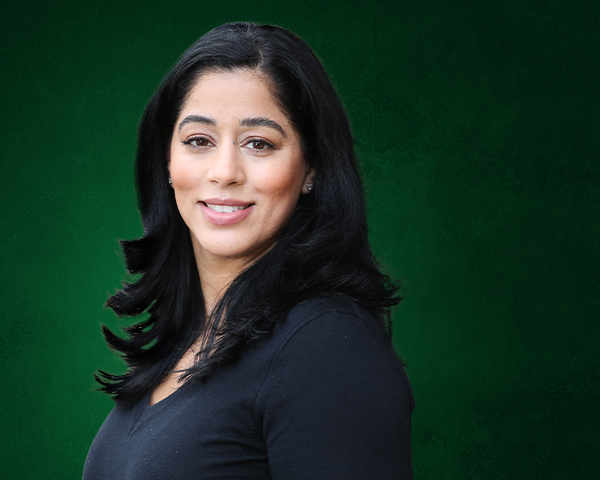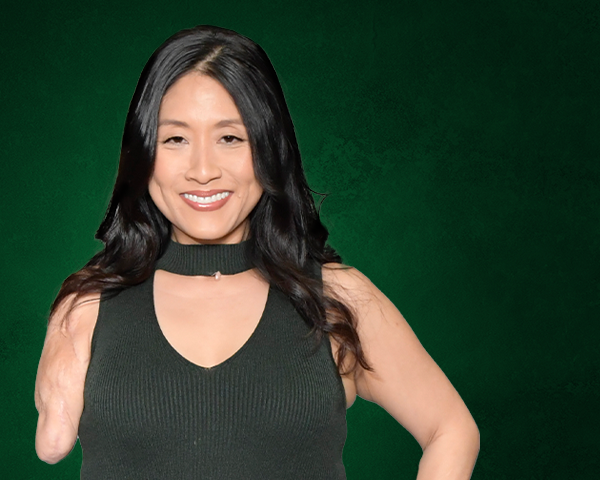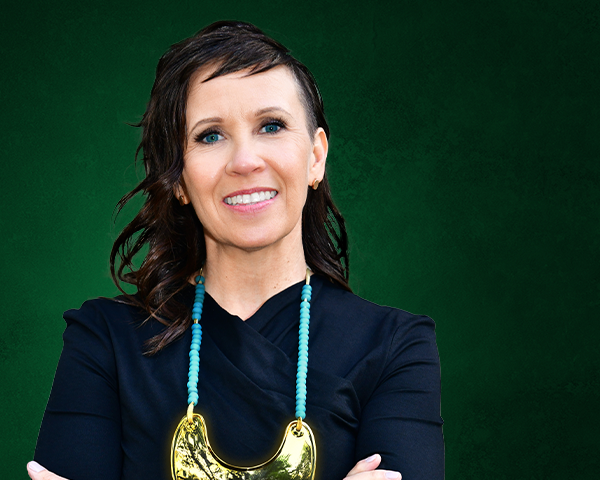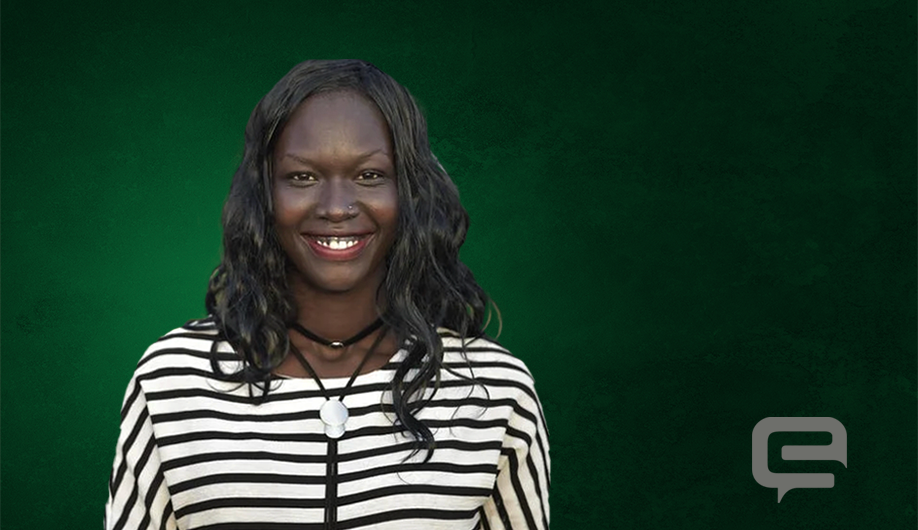
Mary Maker
Through the craft of storytelling, Mary Maker shares her refugee journey to create a ripple effect of impact to develop a world of globally educated individuals that are empathetic and community driven.
PRIMARY TOPICS
- Diversity, Equity, & Inclusion
- Leadership
- Motivation & Inspiration
- Resilience
- Women’s Leadership
GETTING TO KNOW
MARY MAKER
South Sudanese refugee Mary Maker is a refugee education activist working with UNHCR, an actor, a fashion lover and a writer. After fleeing her war-torn country as a child, she found security and hope in attending school in Kakuma Refugee Camp in Kenya. She has since become a teacher of young refugees in her community, and sees education as an essential tool for rebuilding lives and empowering a generation of girls who are too often denied entrance into the classroom. Mary graduated from St. Olaf College Minnesota as part of the MasterCard Foundation scholarship program.
Mary has said: “For the child of war, an education can turn their tears of loss into a passion for peace”.
In 2018, Mary gave an impassioned speech at TEDxKakumaCamp entitled ‘Why I Fight for the Education of Refugee Girls (like me)’. In collaboration with UNHCR, she has gone on to advocate on behalf of refugees on multiple global platforms including Sky News and ABC News. Mary has spoken at international events including Global GoalsCast, the Girl Up Summit, and supported the launch of UNHCR’s annual Education Report. This year, Mary wrote the educational report alongside Lewis Hamilton. She has been featured in social media films and briefings outlining the importance of education. Through highlighting her own personal story, she points out the resilience, talents, and ambitions of the forcibly displaced. She is playing an active role, in not only the response to the global refugee crisis, but also to the global coronavirus pandemic.
In 2021- Mary Started a non-profit, Elimisha Kakuma, a Swahili word for Educate Kakuma. Within one year, Mary and her team have been able to partner with Virginia Tech, UNHCR and Duolingo from where Elimisha was awarded Best of Student Advocacy.
In her spare time Mary enjoys creating new plays, devising new stories, and researching on ancient stories in the African continent.
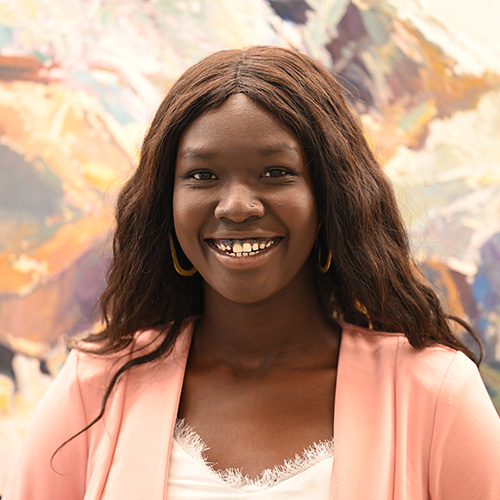
Keynotes
A Journey Less Taken
Mary Maker’s journey has taken many paths. Starting in the Kakuma Refugee Camp in Kenya, to working towards getting an education in the United States. Through powerful stories, Mary shares the challenges of integrating into her new world. Stories are shared of her and her mother moving from one country to another, learning new languages, the uncertainty of finding a home, and coming to terms with her new title, “the refugee.”
On Mary’s journey, she learned the importance of education. Mary started a school to teach other women at her camp in hopes it would give her and others the persistence to succeed. Mary shares through these stories how taking a journey less taken can impact you immensely in the long run.
ORGANIZATIONAL IMPACT:
- the art of resilient and perseverance in education,
- how to give back to communities- the importance and fulfillment that comes with it, and
- how to lead.
Ideal audience:
- Leaders, and
- Changemakers
To Be Woman
Mary Maker’s mother found herself forced into marriage at the age of 13 in 1992. Working through the realities of the community she was born into, Mary struggled to set a new tone for herself and the generations to come. With her mother condemned and shunned by the community, Mary had to learn to develop her own voice, which her mother taught her she couldn’t do.
After watching her mother try to please a community that does not see her as a woman, Mary decided to start defying the community by teaching girls to set new expectations in the community. Mary broke boundaries by teaching sex ed in the refugee camp, a taboo in her community, as well as many other things that were forbidden to young girls. Mary teaches them about theater, music, and dance; all professions seen to be problematic.
In this program, Mary talks about the challenges she faced growing up being a girl and the intersectionality of being a refugee. She redefines womanhood for herself and how she lives by her norms.
ORGANIZATIONAL IMPACT:
- how to stay grounded,
- how to set new expectations with self and being true to oneself,
- how to shift away from norms, and/span>
- how to find one’s voice
Ideal audience:
- Women,
- Leaders, and
- Changemakers
Readjustment
Mary has been moving her whole life. The feeling of “being new” shaped her life. Learning the art of adjustment became a core part of her everyday life. As a child, Mary had to learn the art of diplomacy, how to scan her environment, and how to succeed within that environment.
In this program Mary will cut across different stories where she had to readjust. Some examples were her coming to the refugee camp, going to boarding school, and studying in Uganda, Rwanda, where the language was completely new. Being a theater lover, but she had never taken a theater class before. Mary explains the impact of finding new family among loss of her own and the journeys she had to take to readjust.
ORGANIZATIONAL IMPACT:
- how to seek help in new environments,
- the art of diplomacy, and
- how to modify oneself in new environments.
Ideal audience:
- Leaders,
- Policy Makers, and
- Social Workers
The Last Girl Standing
In this keynote, Mary uses narrative poetry to tell the forgotten stories and realities of refugees. She steers away from her own story and takes a deeper look into other refugee stories she encountered in the camp. Her message digs deep into the roots of inequality in Sudan, Kenya, Ethiopia, and Kenya as well as the politics around being a refugee.
Through her compiled theater works, she walks through her process of writing her plays and poetry. She tackles colorism, a big issue affecting South Sudanese, by explaining the history of racism between the Arab Sudan and Nilotic South Sudan. She also dives in to the problem of child marriage in the camp. NGOs often don’t understand the actual refugee realities, and how refugees have to learn fast to be their own advocate. She shares these experiences to tell the forgotten stories of the last girl standing.
ORGANIZATIONAL IMPACT:
- how to creatively write,
- learn the art of storytelling,
- learning history and how to use history to tell a story
- how to pitch a story.
Ideal Audience:
- writers, and
- NGOs & companies that work to service underserved communities
Speaker Resources
PROMOTIONAL MATERIALS
EVERGREEN Speakers has created promotional templates to help promote your event with Mary. In this folder, you will find resources for social media and press photos that you can use for your event.
Review Promotional Materials
LOGISTICAL MATERIALS
Below you will find logistical resources for the day of your event with Mary.
In-Person AV Needs (PDF)
Speaking Introduction (PDF)


